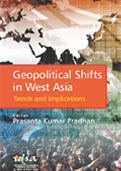Why Uighurs did not get support from West Asia?
The recent clashes that occurred between the Uighur Muslims and the Han Chinese workers in a toy factory and the subsequent spread of violence throughout the Xinjiang Uighur region have elicited strong responses from around the world. The clashes led to the death of over 184 people and left hundreds injured. The issue has also drawn world attention for the way it has been handled by the Chinese government.
- Published: July 24, 2009










